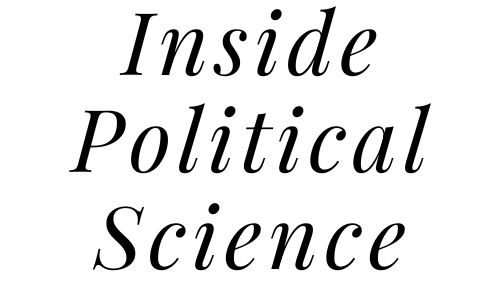
Putting forward the right political candidate at the right time can make the difference between winning or losing an election. And all political parties have their own processes for choosing the candidate most likely to win.
In this article, we will delve into the practical methods employed by political parties to select their candidates, exploring the nuances and factors at play. From primary methods such as party primaries and caucuses to the intricate web of considerations guiding candidate selection, we will unravel the intricacies of this crucial aspect of democratic politics.
How Do Political Parties Choose Their Candidates: Primary Methods
Party Primaries
Party primaries serve as a cornerstone of candidate selection in many political systems, notably exemplified in the United States. These elections, held within party ranks, allow registered party members to vote for their preferred candidate. The primary process can be open, closed, or semi-closed, depending on party rules and state regulations. For instance, in a closed primary, only registered members of the party can participate, whereas in an open primary, voters from any affiliation can partake.
Caucuses
Caucuses represent another method employed by political parties to select candidates, albeit less common than primaries. In a caucus, party members gather at local meetings to discuss and vote on their preferred candidate. Caucuses often involve multiple rounds of voting and deliberation, with participants openly expressing their support for various contenders. The most famous caucuses are probably the first-int-the-nation Iowa caucuses. This method tends to be more time-consuming and requires a higher level of engagement from party members.
Party Conventions
Party conventions serve as a crucial stage in the candidate selection process, particularly in systems where delegates play a significant role. Delegates, elected or appointed representatives of party members, convene at national or state conventions to officially nominate their party’s candidate for office. These conventions often involve a series of speeches, negotiations, and votes, culminating in the formal endorsement of the selected candidate.
Appointment by Party Leadership
In some cases, political parties may opt to bypass primary elections or caucuses altogether and directly appoint candidates through party leadership channels. This method is less common in democratic systems but may occur in instances where consensus among party elites outweighs the need for broader participation. Party leaders or committees typically make these appointments based on various criteria, including loyalty, experience, and electability.
These primary methods form the cornerstone of candidate selection within political parties, each offering distinct advantages and challenges in the pursuit of nominating the most suitable contenders for electoral office.
Factors Influencing Candidate Selection
1. Party Ideology
Candidates must closely align with the fundamental beliefs and values of their political party. This alignment ensures coherence in policy advocacy and representation, bolstering the party’s identity and resonance with its voter base. Parties prioritize candidates who demonstrate a deep understanding of and commitment to the party’s ideological framework, as they are more likely to advance its agenda effectively if elected.
2. Electability
The paramount consideration for parties is the candidate’s ability to win elections. Factors such as name recognition, charisma, and past electoral performance heavily influence a candidate’s electability. Parties strategically select candidates with a strong appeal to voters, maximizing the likelihood of success in competitive races. A candidate’s electability directly impacts the party’s prospects of gaining or retaining power, making it a central determinant in candidate selection decisions.
3. Fundraising Ability
Financial resources are indispensable for mounting a successful campaign. Parties assess a candidate’s fundraising acumen, prioritizing those capable of mobilizing substantial financial support from donors. Adequate funding enables candidates to finance critical campaign activities, such as advertising, staffing, and organizing events, essential for reaching and mobilizing voters effectively. Candidates with robust fundraising capabilities are thus highly valued by parties, as their resources can significantly influence the outcome of elections.
4. Political Experience
Candidates with a proven track record in politics are favored by parties. Experience in government, public service, or political activism demonstrates competence and familiarity with the intricacies of governance, enhancing a candidate’s credibility and effectiveness in office. Parties prioritize candidates with a depth of experience relevant to the responsibilities of the position sought, as they are better equipped to navigate complex policy challenges and represent constituents’ interests competently.
5. Demographic Representation
Diverse representation within the candidate pool is essential for political parties. In multicultural and heterogeneous societies, parties aim to field candidates who reflect the demographic composition of their constituencies. This commitment to diversity fosters inclusivity and enhances the party’s appeal to a broad spectrum of voters. Candidates who represent various demographic groups bring unique perspectives and experiences to the political arena, enriching policy discussions and strengthening democratic representation.
6. Party Unity
Maintaining cohesion within the party ranks is essential for electoral success. Parties consider a candidate’s ability to unify party members and garner support across different factions or ideological wings. Candidates who demonstrate the capacity to bridge divides and build consensus within the party are often preferred, as they contribute to internal stability and solidarity, crucial for effective governance and electoral victory.
7. Public Opinion and Polling Data
Parties closely monitor public opinion and polling data to gauge the popularity and viability of potential candidates. Candidates who consistently poll well and garner favorable public sentiment are often favored, as they are perceived to have a higher chance of electoral success. Parties rely on polling data to assess voter preferences, identify electoral trends, and strategically allocate resources to support candidates with the greatest appeal to the electorate.
8. Endorsements
Endorsements from influential individuals, organizations, or interest groups can significantly boost a candidate’s credibility and visibility. Parties consider endorsements from fellow politicians, community leaders, advocacy groups, and prominent figures within their party or constituency. Endorsements signal support and validation for a candidate’s candidacy, potentially swaying undecided voters and rallying support from specific demographic or interest groups, enhancing the candidate’s chances of success in primary elections or general contests.
Closing Thoughts
In the process of candidate selection, political parties navigate a multitude of considerations to identify and nominate individuals who embody their values, appeal to voters, and maximize electoral success. From ideological alignment and electability to fundraising prowess and strategic positioning, each factor plays a crucial role in shaping the candidate pool and determining the outcome of elections. As parties continue to adapt to evolving political dynamics and societal changes, the quest for effective and impactful candidates remains central to the functioning of democratic systems, ensuring representation, accountability, and the pursuit of collective interests.
